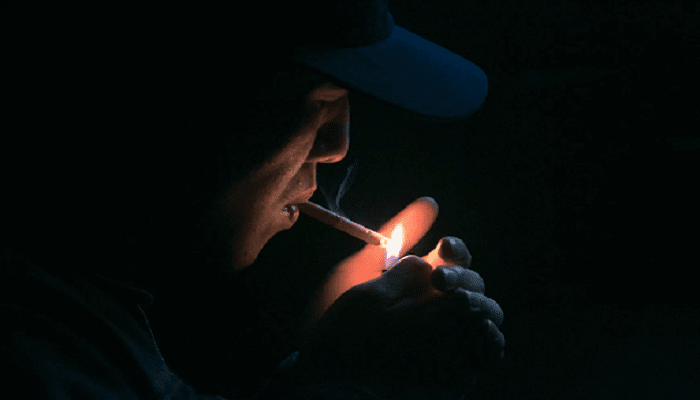Addiction is a severe problem that can tear families apart. When someone you love is struggling with addiction, it can be hard to know what to do. Seeking professional help is often the best option, but knowing when to seek help can be challenging. Here are some signs that it might be time to reach out for help.
Sudden Behavior Change
One of the earliest warning signs of addiction is a sudden behavior change. If your loved one starts acting differently all of a sudden, this could be an indication that something is going on. For example, if they become suspicious or secretive about their activities, avoid actual family events, or withdraw from friends and family members, these are all potential signs of addiction.
What happens is that the addict becomes unable to control their behavior, and they will often become secretive as a way to hide their struggles. If you notice sudden behavior changes in your loved one, you must reach out for help immediately.
This, however, does not occur overnight and is usually a long, gradual process. It’s also important to note that not every sudden behavior change is due to addiction; it could signify a mental health issue or another problem.
Physical Changes
In addition to behavioral changes, it’s also essential to look out for physical changes in your loved one. For example, if they have bloodshot eyes or become unusually pale, this could indicate that something is going on. Other physical signs of addiction include weight loss, tremors or shaking, and changes in sleep patterns.

If you notice any of these physical warning signs, you must speak with a professional immediately. They can help you determine whether your loved one is struggling with addiction, and they will be able to provide the support and treatment needed to get better.
When choosing a drug and alcohol rehabilitation center, you must consider your loved one’s specific needs. Your loved one may need a facility that offers specialized treatment for co-occurring disorders, or they may need access to more intensive therapies like inpatient treatment. The team from HiredPower.com explains that customized therapy goes a long way toward helping your loved one achieve lasting recovery. Research to find a suitable facility for your loved one, and start the recovery process as soon as possible. The website of the recovery center offers more information on addiction and the options available for treatment.
Neglecting Responsibilities
There is a close connection between addiction and the compromise of responsibilities, especially at work or school. If your loved one starts missing days at work or failing to meet essential deadlines, this could be a sign that they are struggling with addiction.
Additionally, if they start neglecting essential family responsibilities like taking care of their children or paying bills on time, these are also potential warning signs of addiction. This is commonly seen in parents who neglect their children due to addiction, as the need to feed the addiction becomes more important than meeting primary responsibilities.
This also acts as a source of employee-worker conflicts and business problems as the employees become more unproductive and negligent of their duties. In this case, you may need to take a different tack for your loved one than a specific intervention and remove them from the workplace to give them some space and time to recover from their addiction.
Paraphernalia
This acts as evidence that something is happening behind the scenes. For example, if you see drug or alcohol bottles lying around your loved one’s house, this could be a sign that they have been using these substances regularly.
If you notice syringes or empty pill bottles in their room, they have been using drugs or alcohol regularly. If you see these items, you must immediately talk to your loved one about their addiction.
The presence of drug paraphernalia implies that someone’s addiction is getting worse. It can be scary, so talking to them as soon as possible allows you to get the support and treatment they need.
Shift to Illegal Activities
It’s common for people struggling with addiction to resort to lying to hide it from their friends and loved ones. It may be difficult to spot these lies at first because your loved one will likely be very good at hiding them.
However, with enough time and observation, you may notice signs of something going on behind the scenes. For example, if your loved one becomes jumpy or nervous when you ask simple questions about their day, this is a sign that they are lying to you. Also, if they start spending a lot of time alone or with different people, this is a sign that something might be going on.
Defensiveness
Your loved one may become very defensive when you start asking questions about their behavior. They may act like they are being controlled or made to feel guilty for something. Regardless, this is a strong indicator of an underlying issue with addiction in your family.
Of course, not everyone who becomes defensive has an addiction, but if it is frequently happening, this is a sign that you should start looking into the situation further to see if your loved one needs help.
However, it’s good to pick the right approach as you do not want to make your loved one feel worse about their addiction. In this case, it’s best to try a sensitive approach and ask them what’s wrong instead of directly accusing them of something.
Withdrawal
Those struggling with addiction may display abnormal behavior when not using drugs or alcohol. They may isolate themselves from loved ones and withdraw socially due to feelings of shame and guilt related to their addiction.
In some cases, they may start acting out in anger or displaying aggression and hostility. In other situations, those struggling with addiction may show signs of depression or sadness due to the shame and guilt associated with their addiction. Be aware of these kinds of changes in behavior as they could be symptoms associated with a drug or alcohol problem.
If you notice any of these signs in your loved one, it’s vital to take action quickly. The longer someone struggles with addiction, the harder it will be for them to recover from their problem. By talking to them about their addiction and getting them the help they need, you can start on the path toward a healthier and happier future.


















